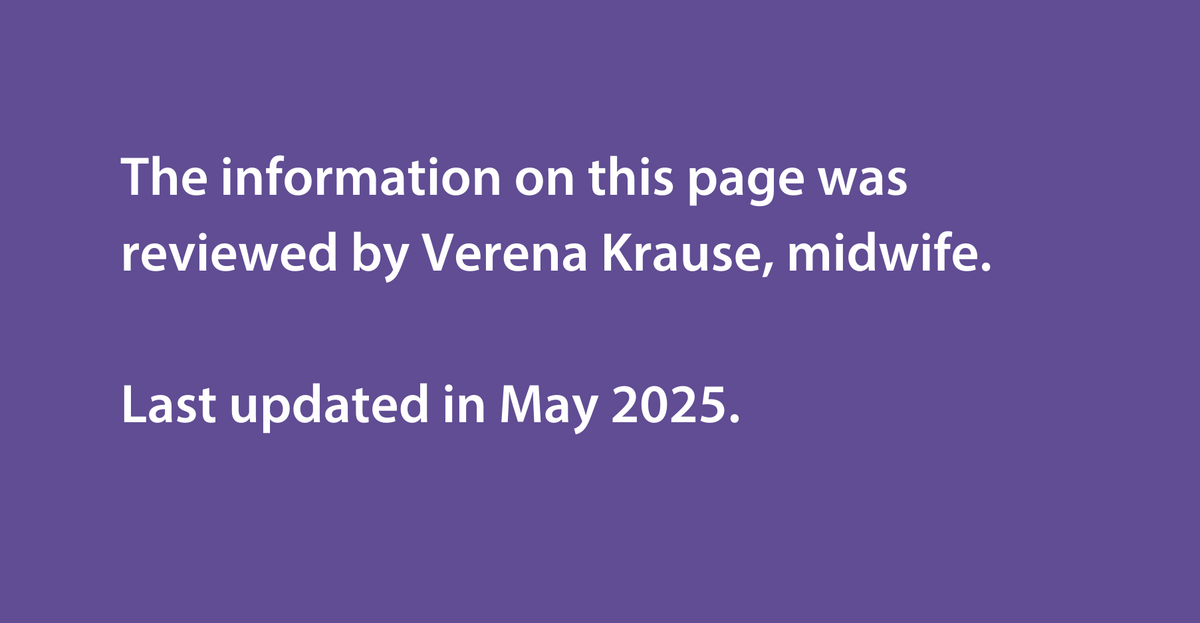Your lifestyle – your routines, habits, activities, and environment – has a big impact on your health. During pregnancy, these things also affect your baby’s health. Expecting parents are often encouraged to think about their lifestyle and how it might shape their baby’s early development.
Healthy habits during pregnancy – such as eating a balanced diet, avoiding alcohol, staying physically active, caring for your skin, and understanding pelvic health – are especially important for the pregnant woman and her baby. However, other aspects – like avoiding smoking, substance use or abuse, managing stress, and reducing chemical exposure – are also relevant for partners, other household members, and visitors, as their behaviors can influence the well-being of the unborn baby and the home environment after birth. Minimizing or avoiding stress is also an important factor.
Making thoughtful, informed choices during pregnancy can help create a healthy start for your child. While some lifestyle changes may help reduce the risk of preterm birth, it is important to know that in about half of cases, the cause is unknown, and lifestyle changes cannot prevent a baby being born too soon.
Modifiable lifestyle choices
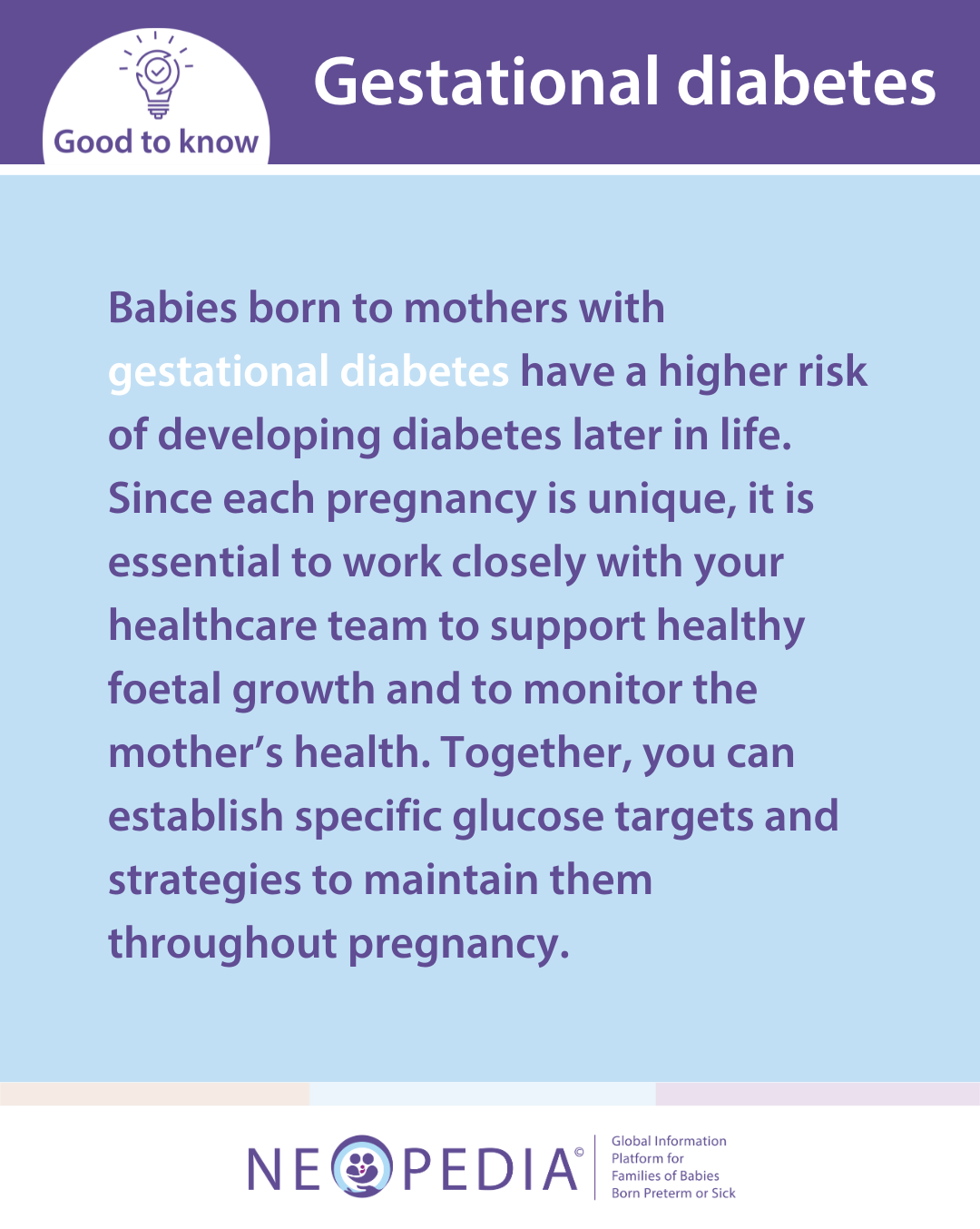
What a mother eats during pregnancy affects the growth of her baby and their health later in life. If you are pregnant, it is important to eat a balanced diet with plenty of fruits and vegetables, whole grains like brown rice and bread, and protein sources like fish, dairy, or meat. Also, remember to drink enough fluids to stay hydrated.
Every pregnancy is different, so it is helpful to talk to a healthcare professional for personalized advice on what nutrients you need.
What should be completely avoided during pregnancy?
Tip: Healthy alternatives such as dried fruit, dates, nuts, and seeds can help manage cravings for sweets, etc.
Nutrients
Getting the right nutrition is very important for your baby’s healthy growth. Talking to your doctor about your nutrition can help you understand what your body needs. Here are some key nutrients to pay attention to:
A mothers' health and habits during pregnancy can play an important role in their baby's future. When mothers are facing challenges with weight, it is important to understand that their baby may receive more nourishment than needed in the womb⍰, which could increase the risk of weight-related health concerns later in their lives. On the other hand, if a mother's diet is unbalanced or low in nutrients, which can happen when someone is struggling with an eating disorder, their baby might not get enough nourishment before birth. When a baby does not get enough food while in the womb, they may learn to adapt to having less, which can affect how they respond to food after they are born and may lead to health issues later.
Remember, every parent's journey is unique, and it is important to be gentle with yourself during this process. You are doing your best for your baby by staying informed about potential risks, and seeking support is always a positive step.
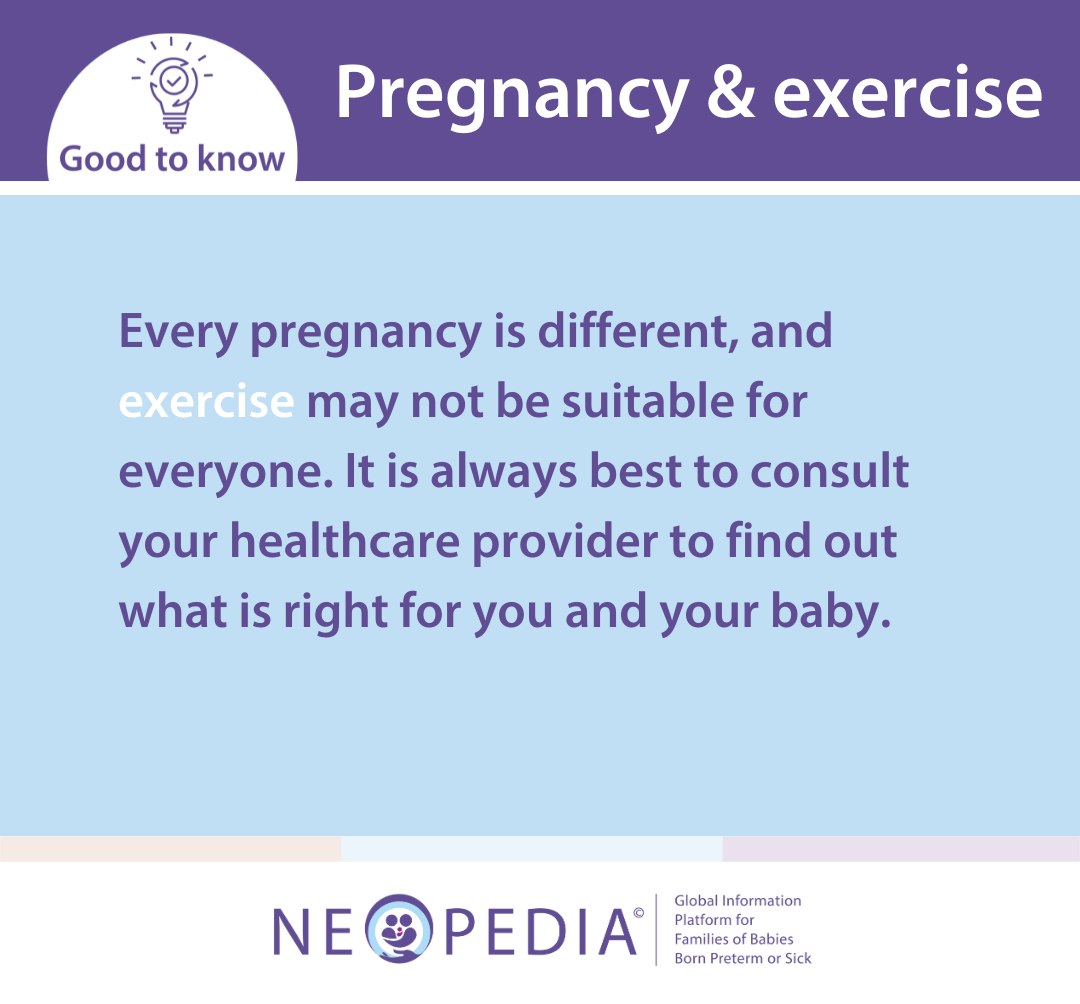
Staying physically active during your pregnancy can benefit both you and your baby, offering many physical and psychological advantages. These include improved cardiovascular health⍰, a more controlled and healthy weight gain during pregnancy, reduced muscle cramps and swelling, and a more stable mood. Moreover, by staying active you can help prevent fatigue, headaches, back pain, and constipation.
Physical activity can help you control your blood sugar⍰ levels, and it may even prevent the development of gestational diabetes⍰ during pregnancy. Additionally, staying active contributes to your baby's stress tolerance and promotes neurobehavioral development. It is best to engage in activities that make you feel comfortable and safe, avoiding contact sports, or activities where you can easily get hit, fall, or movement with sudden stops. As your pregnancy progresses, gentler exercises such as swimming and yoga are more suitable.
You might be asking yourself, whether it is better to take a bath or rather shower during pregnancy. Both are viable options, but it is important to be mindful of certain considerations. If you want to take a hot bath, make sure:
In saunas, stay no longer than 15 minutes. In the later stages of pregnancy, a quick shower might be preferable to a hot bath.
Although not a risk factor for preterm birth, it is good to mention that hormonal changes during pregnancy can cause skin issues such as acne and darkening. A gentle skincare routine with soap-free cleansers and moisturizers can help manage these changes. Prevent skin pigmentation with suitable protection measures. Stretch marks can be reduced with regular moisturizing and gentle massages.
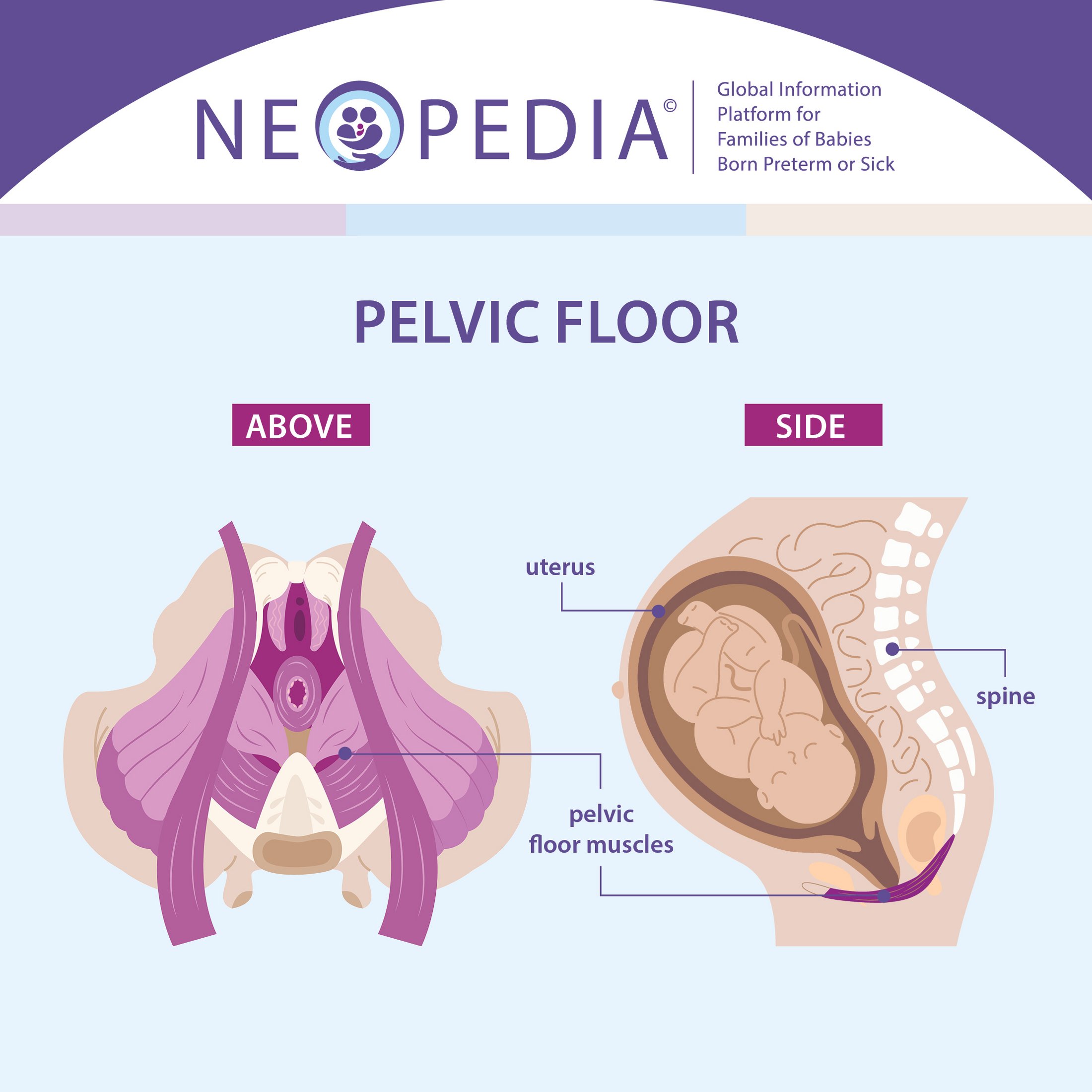
The pelvic floor, a layer of muscles at the base of the pelvis, supports various bodily functions, including keeping the openings of the body tightly closed and enabling emptying when needed. Pregnancy and childbirth impose significant strain on the pelvic floor due to increased weight and hormonal changes, which can lead to issues like bladder⍰ weakness post-delivery.
During pregnancy, hormonal changes, especially from the hormone relaxin, can lead to symphyseal pain, which is discomfort typically felt at the front of the pelvis. This pain may worsen with movements like walking, climbing stairs, or getting out of bed. To help ease this discomfort, you could consider using a pregnancy support belt, which provides extra stability to the pelvis and may reduce pain.
Ask your healthcare provider about the options to strengthen your muscles in this area and support pelvic health with possible exercises or massages.
Our environment contains various chemicals that can affect our health, from the air we breathe to the products we use and consume. During pregnancy, it is especially recommended to try to minimize exposure to these chemicals, as developing babies can be sensitive to them. Simple steps can help, like washing fruits and vegetables, choosing organic foods when possible, avoiding using a lot of fragranced cosmetics, especially those containing ingredients such as retinol, salicylic acid, or certain essential oils. Whenever possible, opting for biodegradable cleaning products instead of harsh chemicals is also advisable, as they decrease chemical intake.
Drinking alcohol during pregnancy and breastfeeding can affect your baby's growth and well-being, but there is good news – you have the power to protect them. Experts strongly recommend avoiding alcohol altogether during pregnancy. This includes being mindful of sweets or other foods that might contain alcohol. The same advice applies when breastfeeding, as everything a mother consumes can pass to her baby through breast milk.
When alcohol enters an unborn baby's bloodstream, it can impact their brain development, potentially leading to a condition called fetal alcohol spectrum disorder (FASD). This condition can show up in different ways, such as delayed physical or intellectual development compared to other children. Kids with FASD may have trouble sleeping, eating, or focusing, and they can be more restless or fidgety. As they grow older, they might experience mood issues, like depression⍰, or have difficulty forming close relationships. Some children may have normal intelligence but still face behavioral challenges. Sadly, milder cases of FASD can sometimes go unnoticed.
The good thing to remember is that FASD is completely preventable. By choosing to avoid alcohol during pregnancy, you can remove this risk entirely and give your baby the best start in life. You can always talk to your healthcare provider in case you have any questions about alcohol consumption when expecting or breastfeeding.
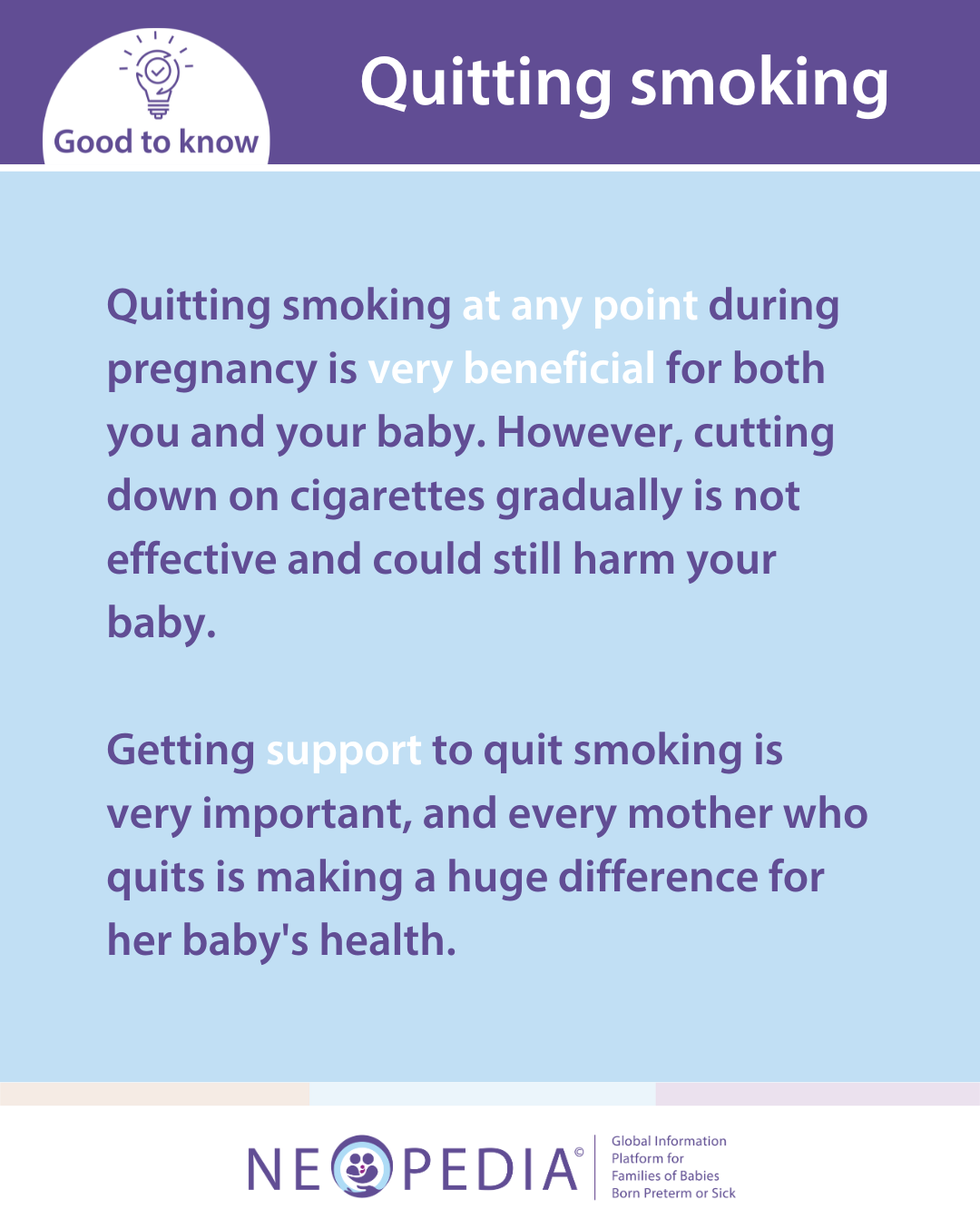
Smoking can have serious effects on both parents and their unborn baby. Couples who smoke might take longer to get pregnant compared to those who do not. For men, smoking can lower both the number and quality of sperm, making it harder to conceive. For women, smoking during pregnancy can reduce the growth of blood vessels in the placenta⍰, which means the baby may not get enough oxygen and nutrients.
Smoking during pregnancy raises the risk of miscarriage⍰, increases the chances of having a baby born too early and lowers the chances of having a baby at a healthy weight. It can also slow down the baby’s lung development and increase the risk of birth defects, stillbirth⍰, and sudden infant death syndrome (SIDS)⍰.
Tobacco smoke is one of the most dangerous forms of indoor pollution⍰, filled with toxic and cancer-causing chemicals. These harmful particles can stick to surfaces like walls, clothes, and furniture, continuing to release into the air and putting others at risk. After smoking, it is a good idea to change your clothes, wash your hands, and even your hair before being around a pregnant woman or newborn.
During pregnancy, the placenta⍰ helps deliver oxygen and nutrients from your body to your baby. This means that anything in your bloodstream – like alcohol, drugs, or even some medications – can reach your baby too. Drugs can build up in your baby's system and cause harm, sometimes with lasting effects.
Using drugs during pregnancy can lead to serious problems for your baby. Some of these issues may not show up right away but could appear as your child gets older. It is important to talk to your healthcare provider to get more information and support. They are there to help!
What can you do?
The safest approach will depend on the type of substance you are using – whether it is alcohol, cannabis, opioids, or something else. For many substances, the best option may be to stop use, ideally with medical supervision to support you and your baby’s health. In some cases, switching to a safer alternative can help reduce risks. For example, opioid substitution therapy is often safer for both you and your baby than stopping suddenly. Your healthcare provider can discuss the best approach for your individual situation, ensuring the healthiest outcome for both you and your child.
Risks associated with drug use during pregnancy or after giving birth include:
A note on using cannabis during pregnancy and breastfeeding
Studies show that 2-5% of pregnant women use cannabis. After birth, babies exposed to cannabis in the womb⍰ may grow poorly, have a higher risk of childhood leukemia, and show signs of neurobehavioral issues like irritability, tremors⍰, or excessive crying.
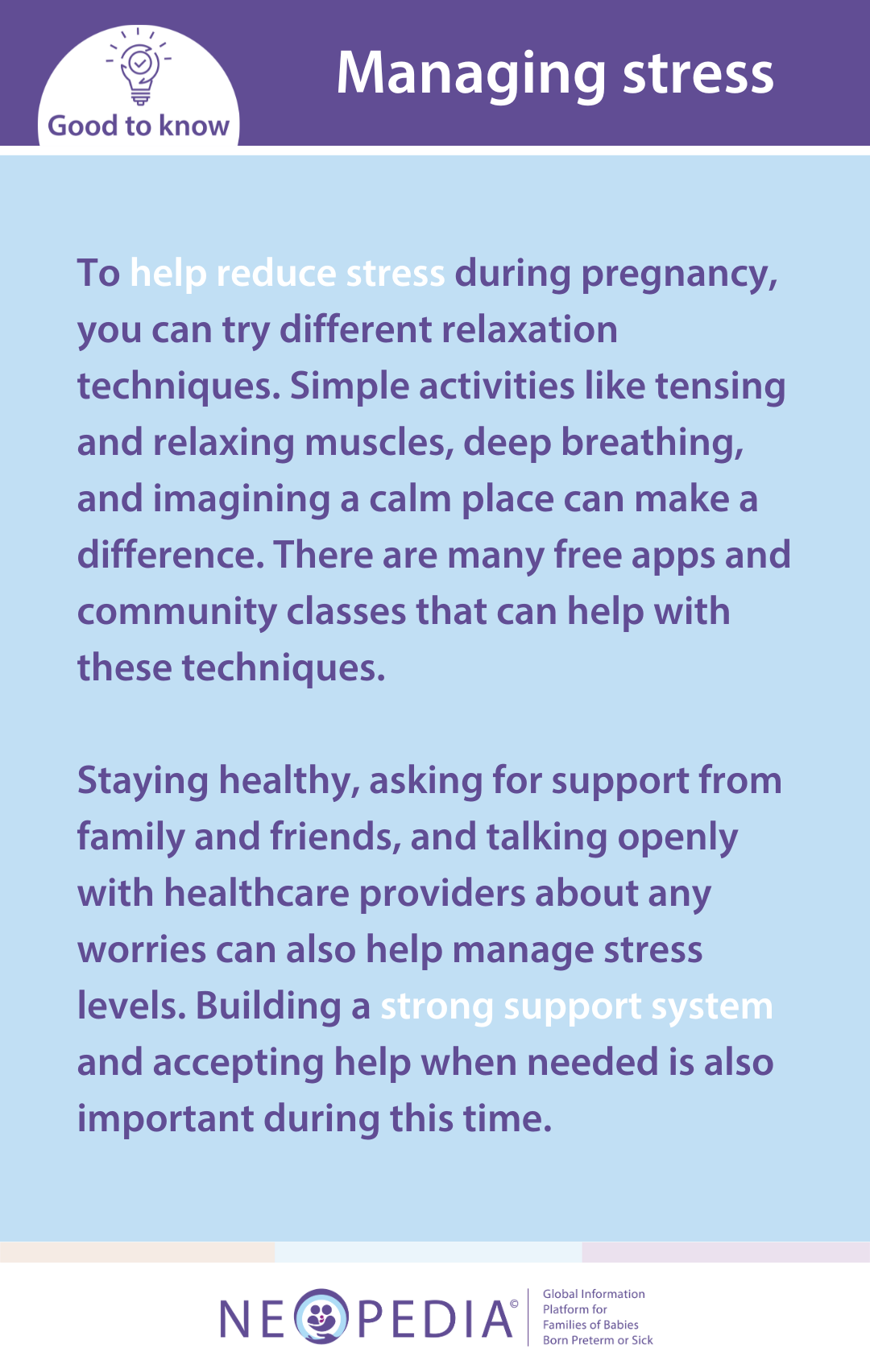
While some stress is normal, too much can make it hard to cope with daily life. Stress can be short-term (acute) or long-term (chronic). Acute stress, like having an occasional argument, usually goes away quickly, while chronic stress, dealing with negative life events, can last a long time and lead to more serious problems, such as preterm labor⍰. Ongoing stress can also cause issues like high blood pressure⍰, trouble sleeping, and changes in appetite, which can be harmful to both the mother and baby.
Stress often comes from feeling out of control or unable to handle problems. Becoming a parent brings many emotional and social changes, especially for women. Stress can also increase due to difficult pregnancies, past negative experiences, relationship troubles, or being a single parent. Both physical and emotional stress can change hormone levels, which may reduce blood flow to the placenta⍰ and affect the baby’s growth.
There is always help, and if you are dealing with a lot of stress, you can turn to your healthcare providers or connect with trusted family and friends who can offer understanding and support.
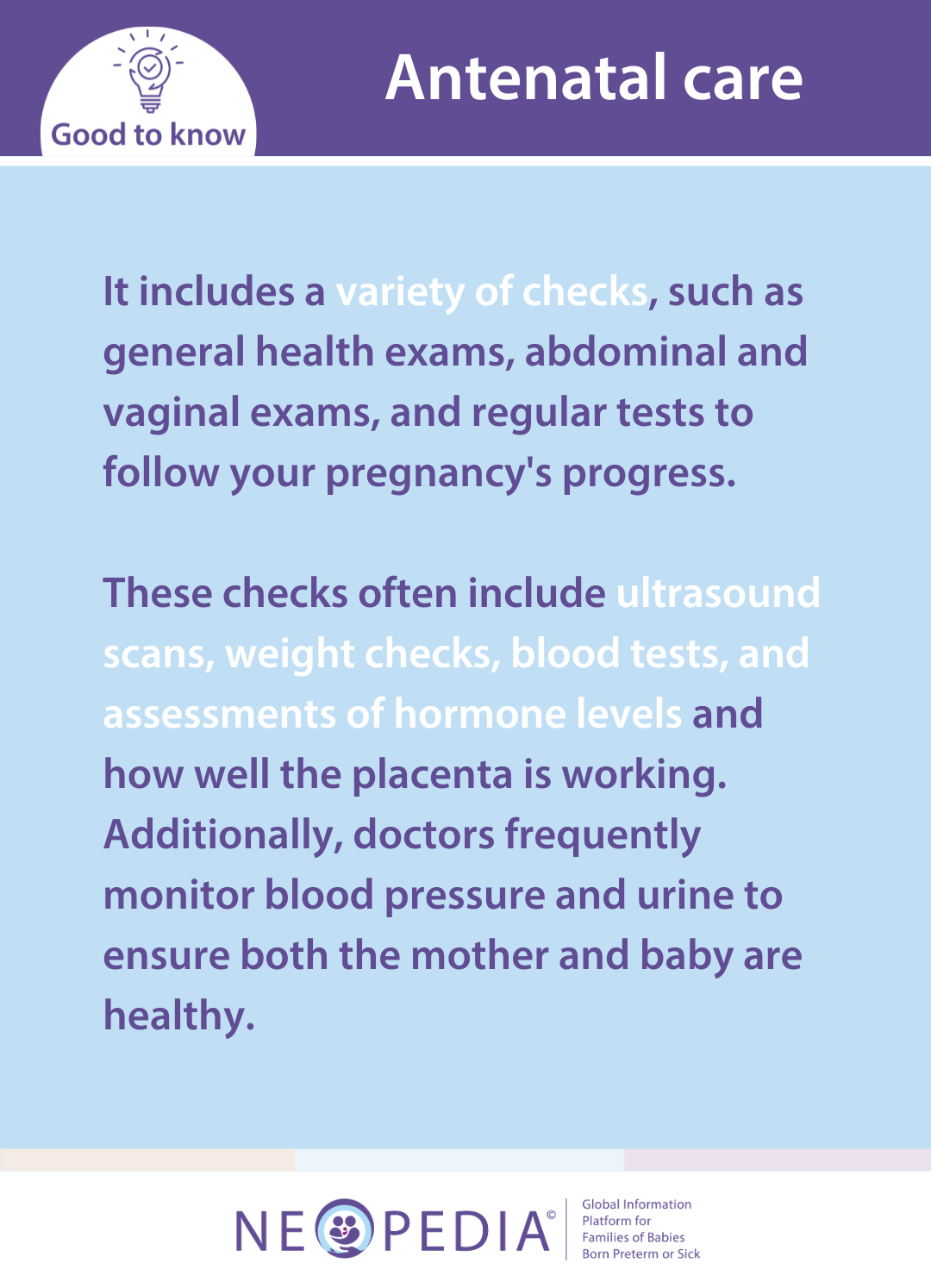
Antenatal care
Antenatal care, also known as prenatal care, is very important for keeping you and your baby healthy during pregnancy. Regular check-ups help doctors and midwives spot and handle any problems early on. This care also provides education and support, helping expectant parents make informed choices about their pregnancy, childbirth, and care after the baby is born.
Read more about antenatal care on our antenatal care and monitoring page.
Environmental factors
Unfortunately, there are environmental factors which can affect you and your baby during pregnancy. The good news is, there are steps you can take to minimize their impact.
